Jujutsu Kaisen Chapter 41
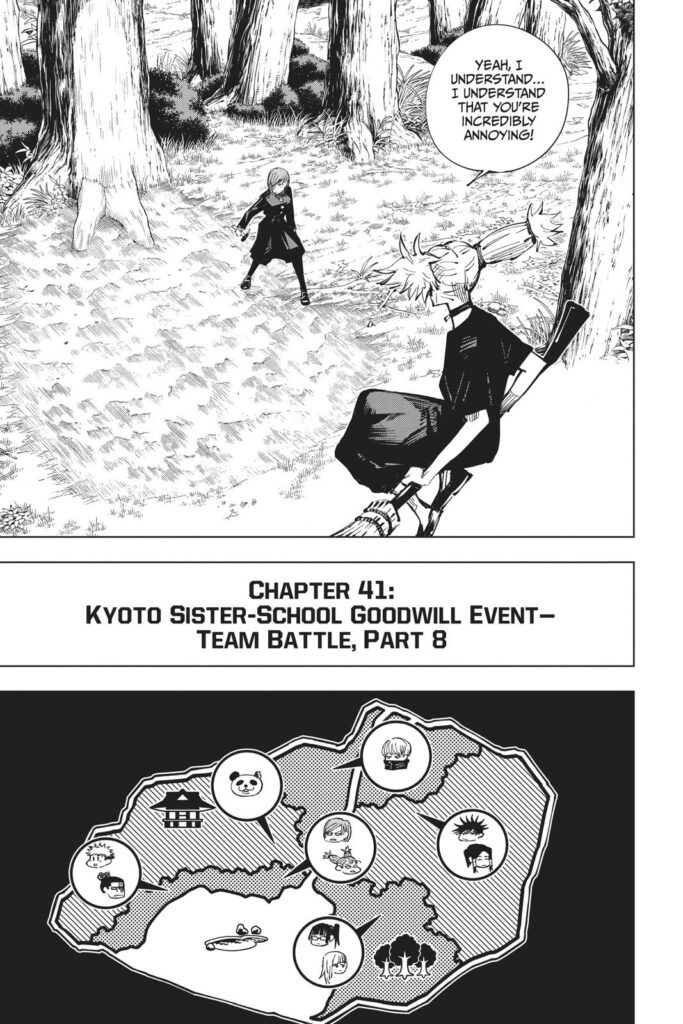
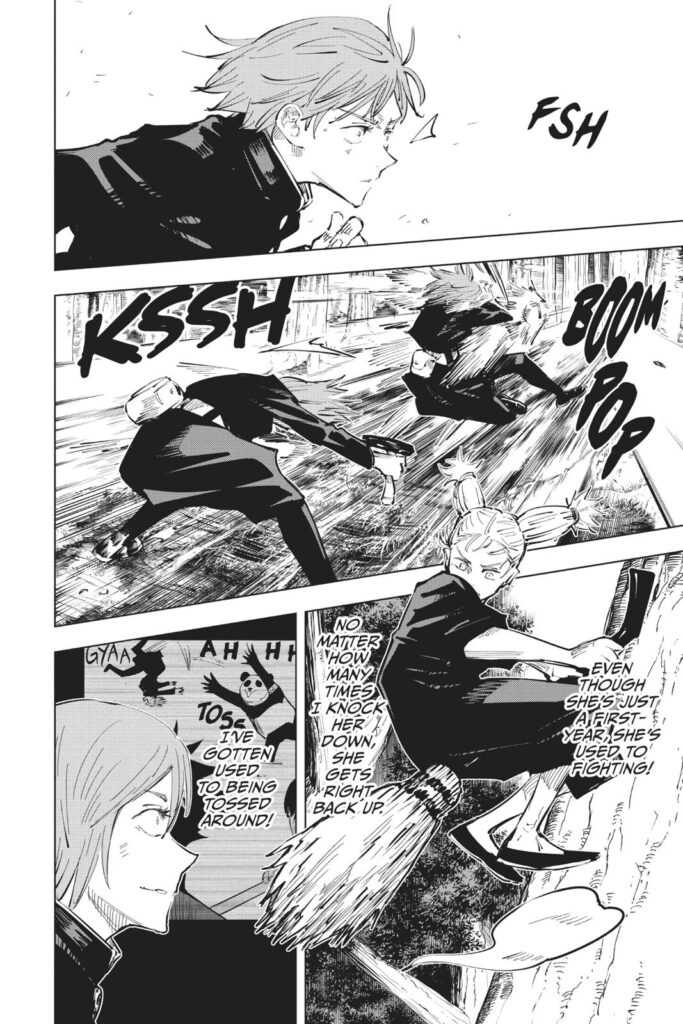
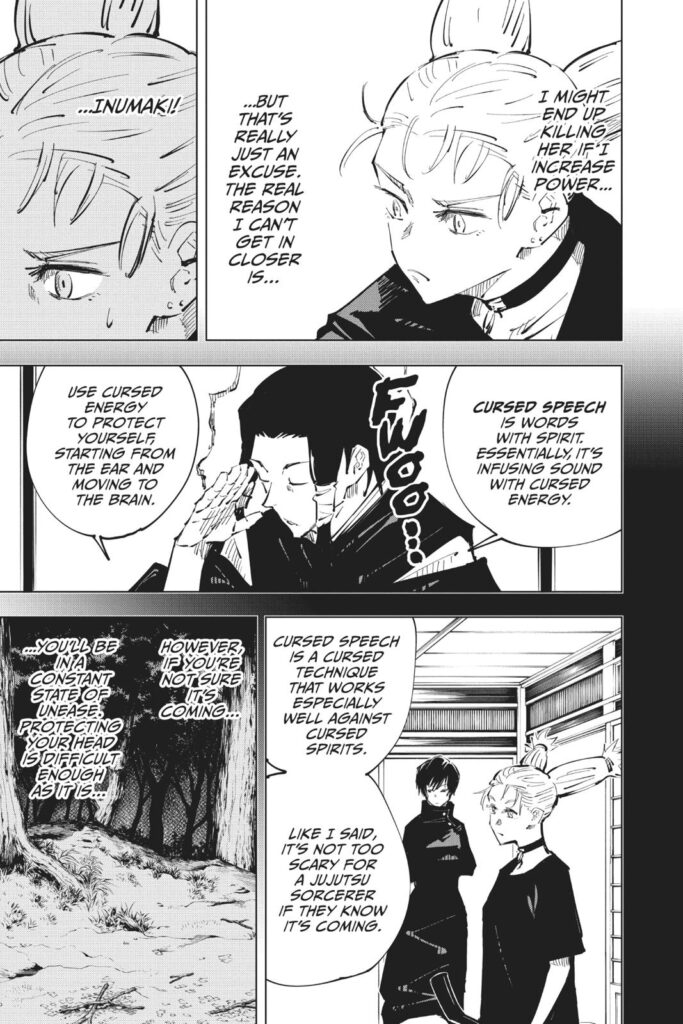
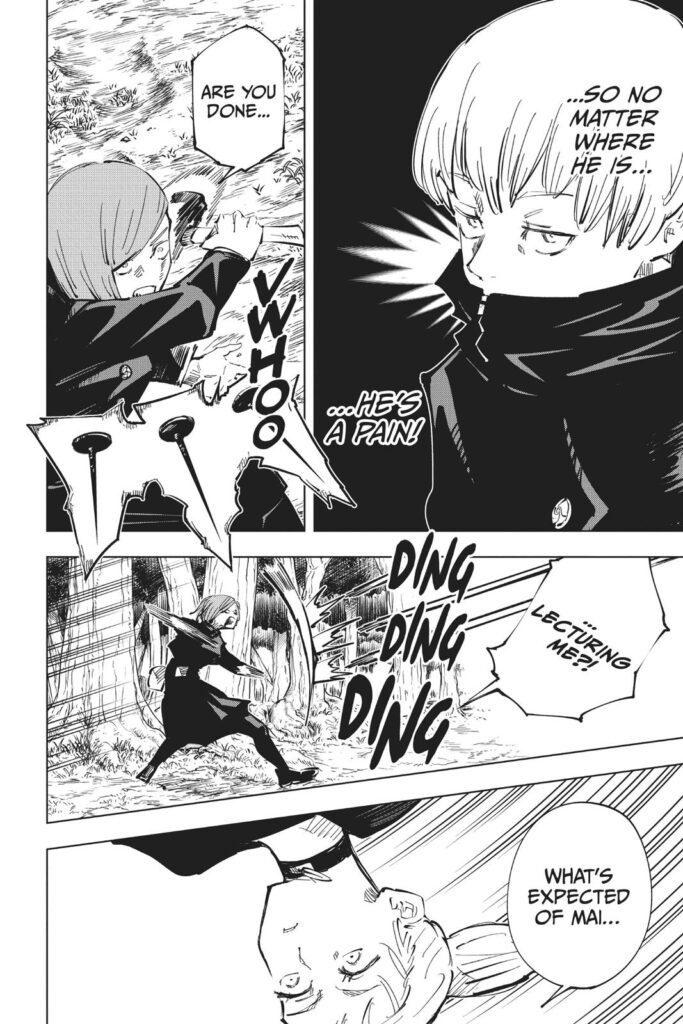
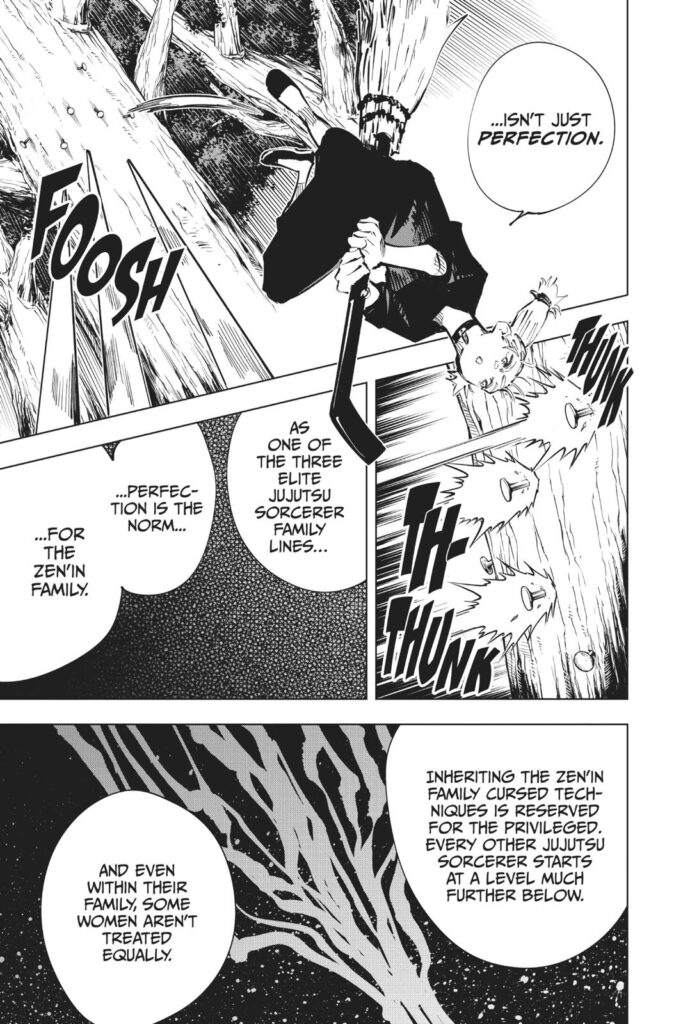
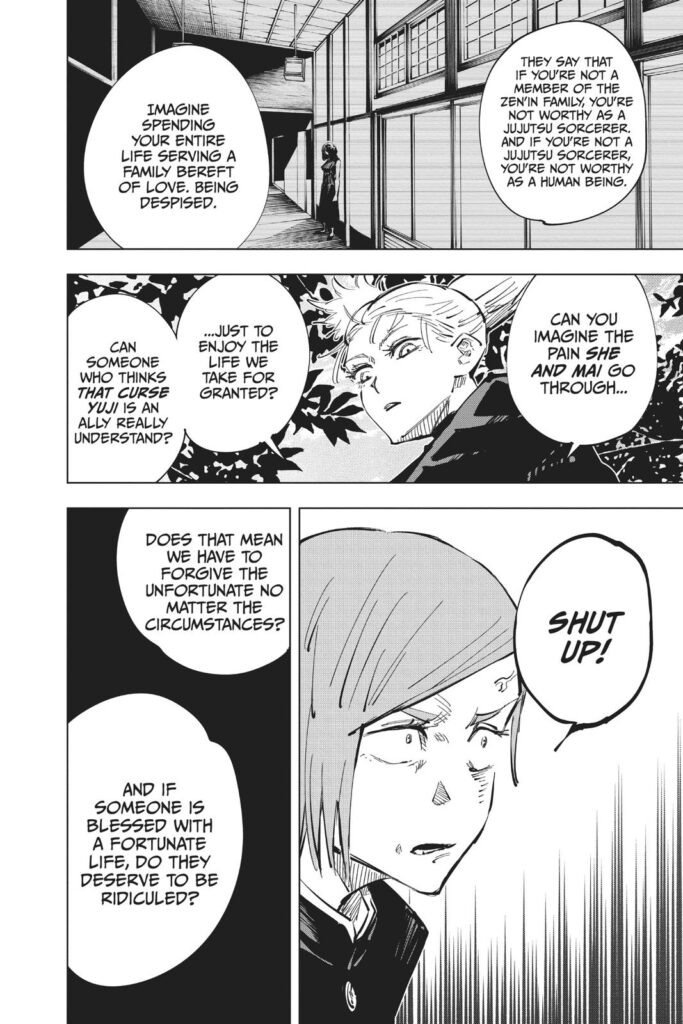
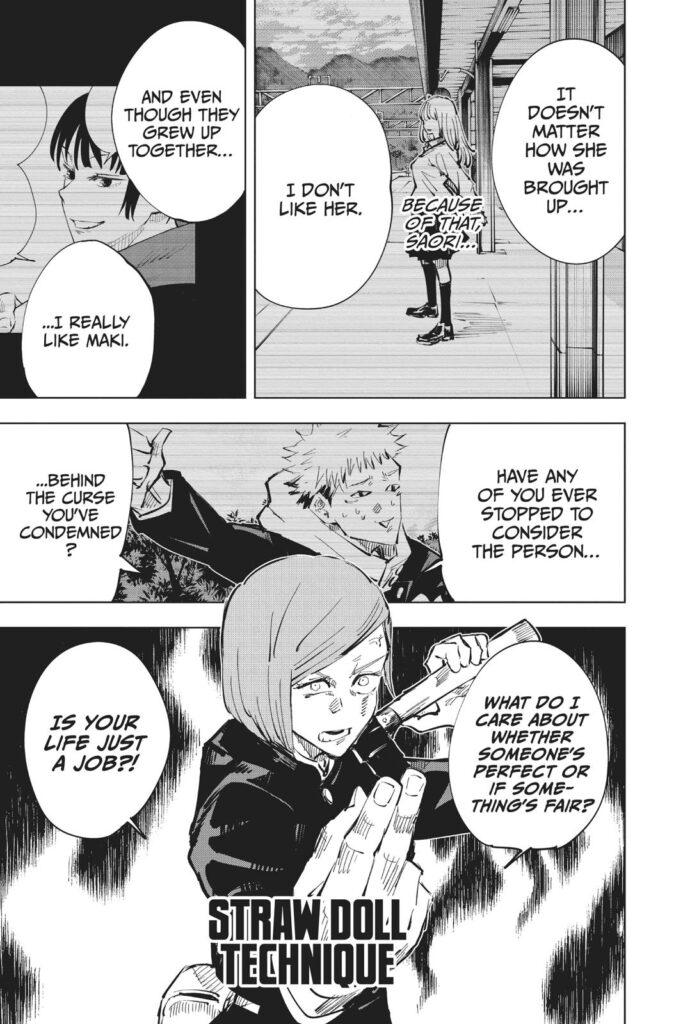
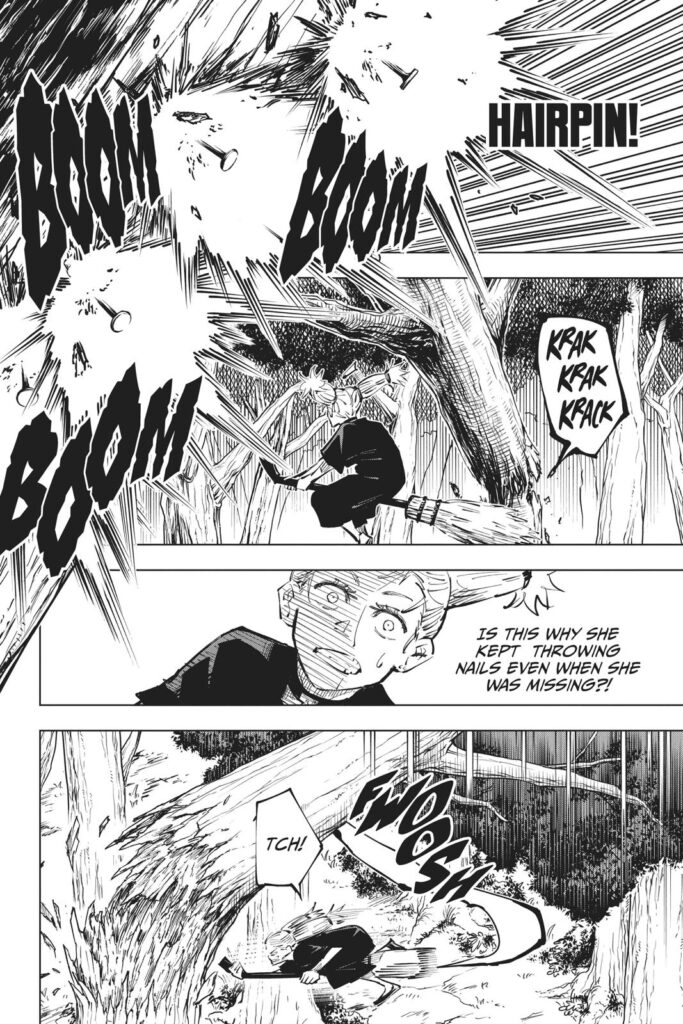
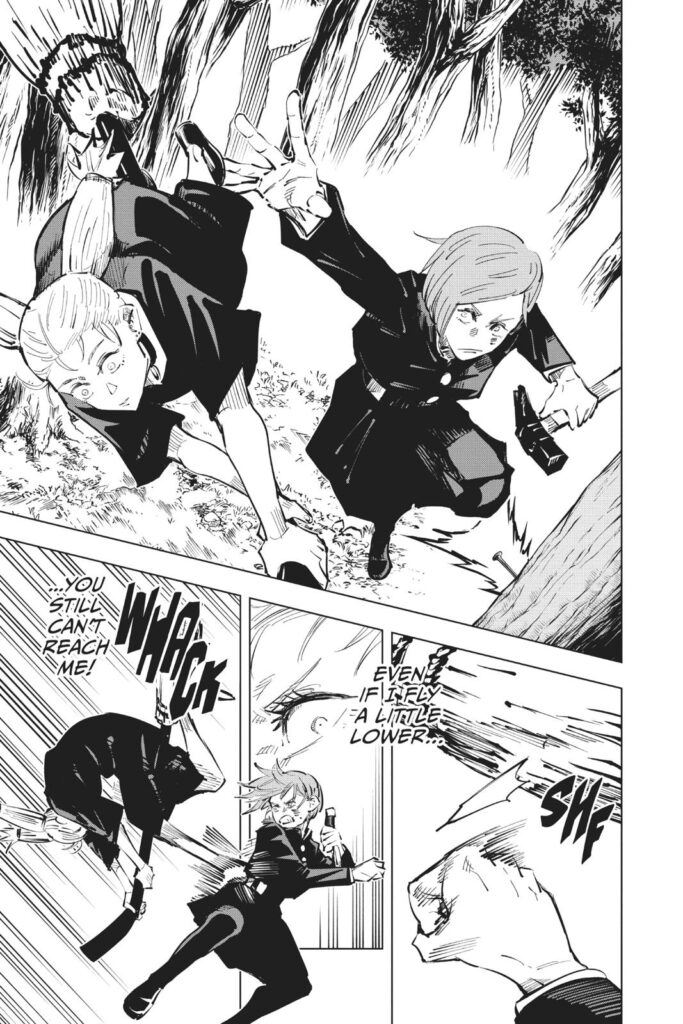
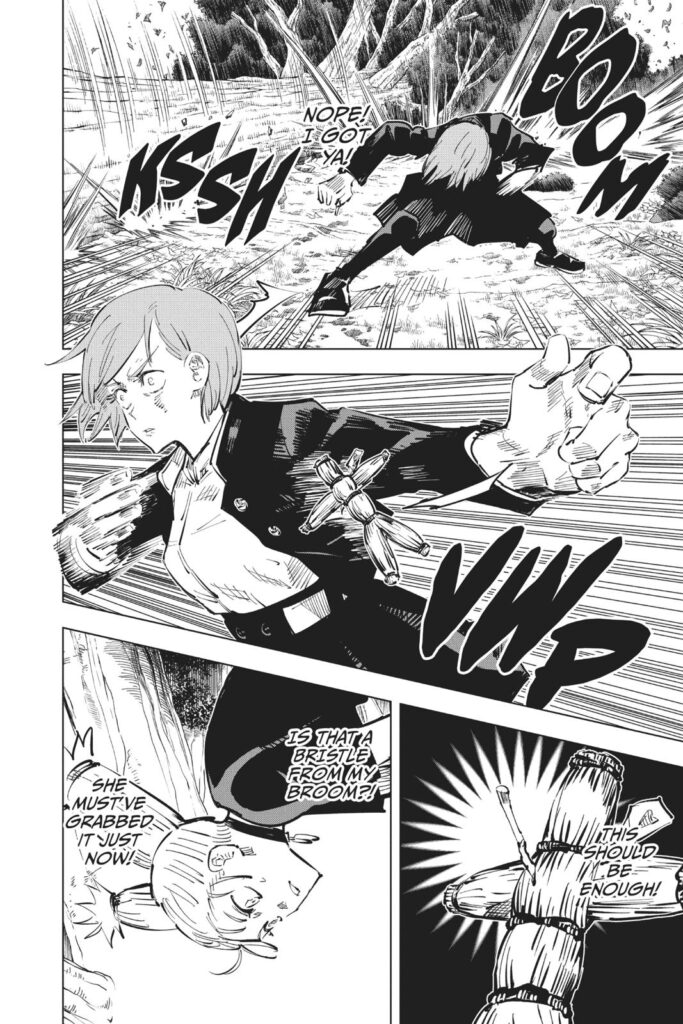
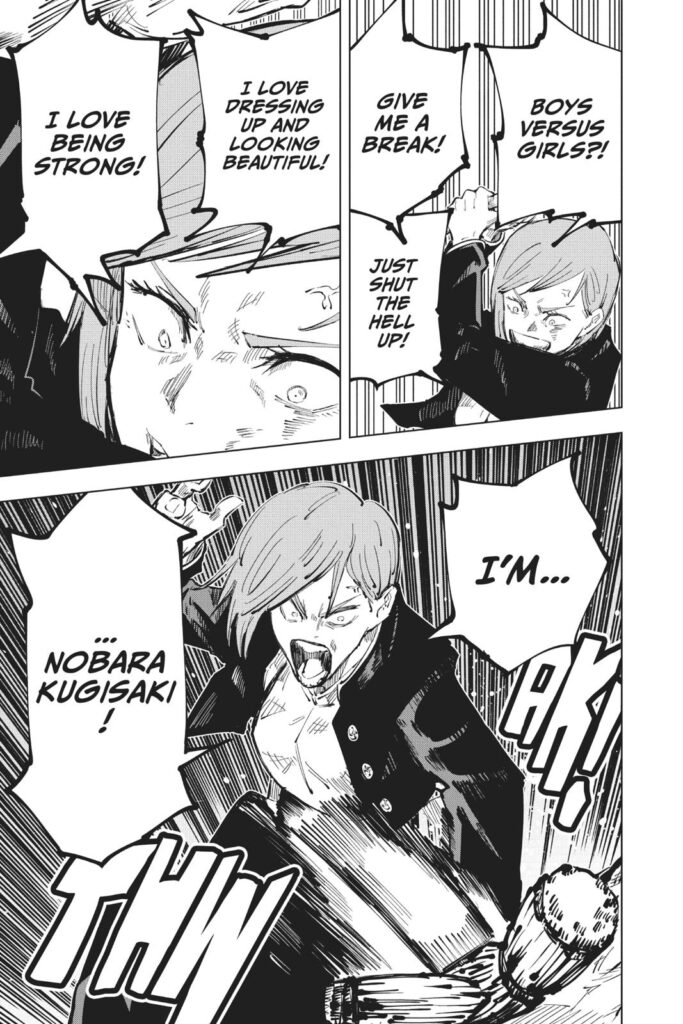
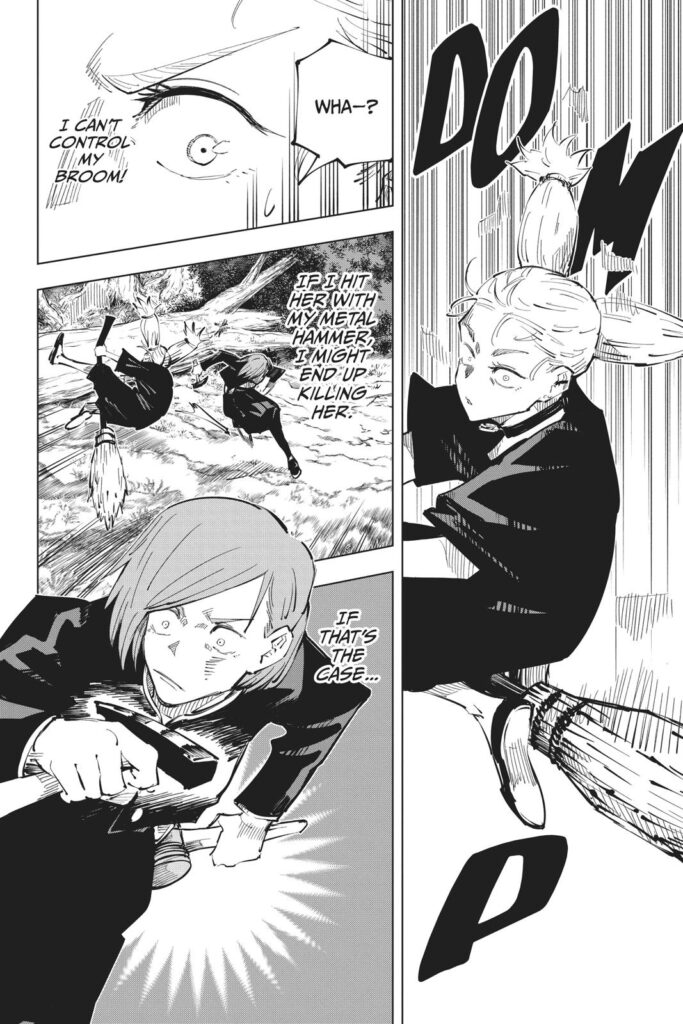
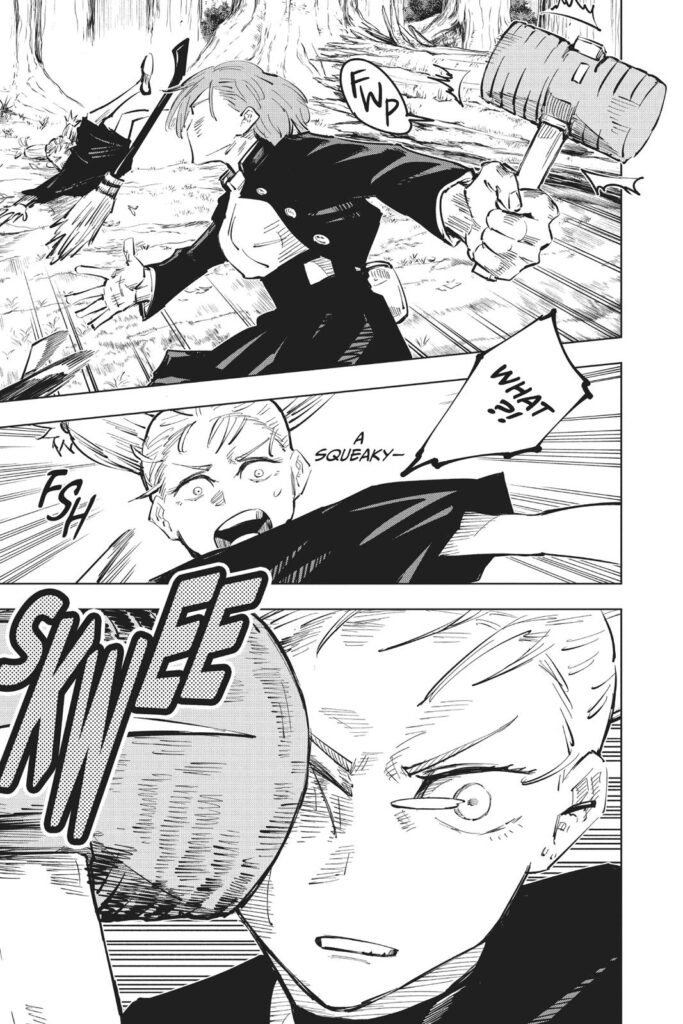
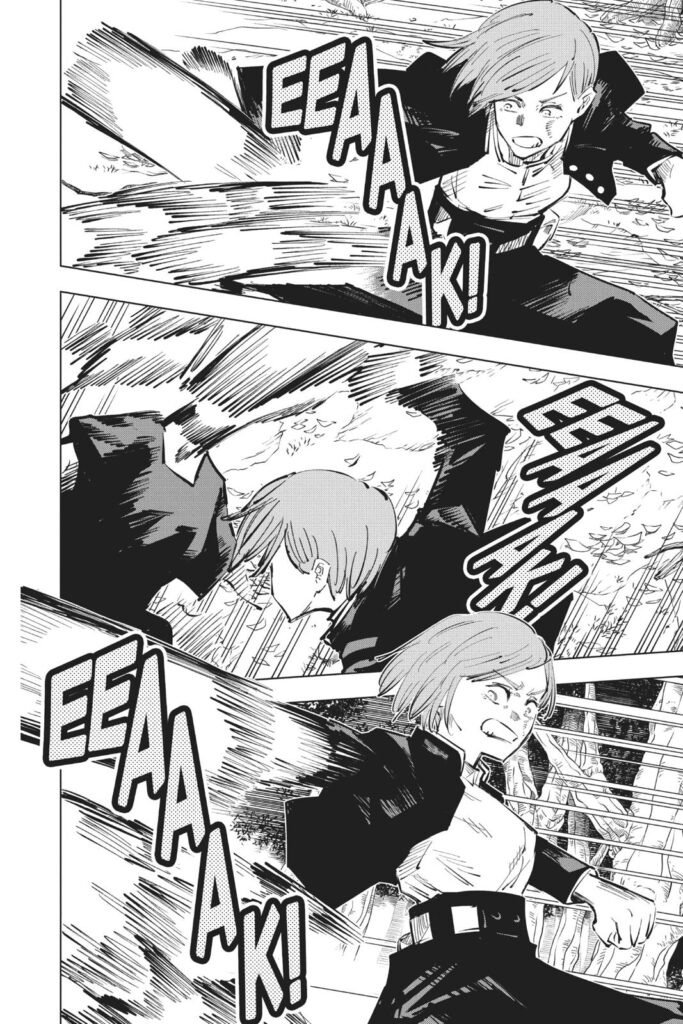
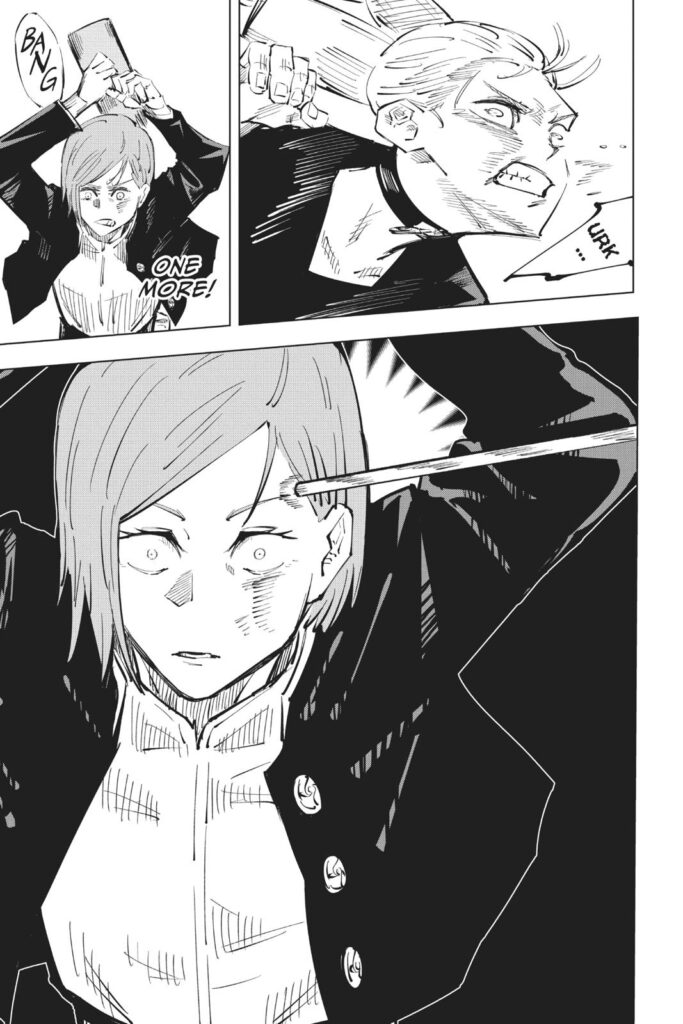
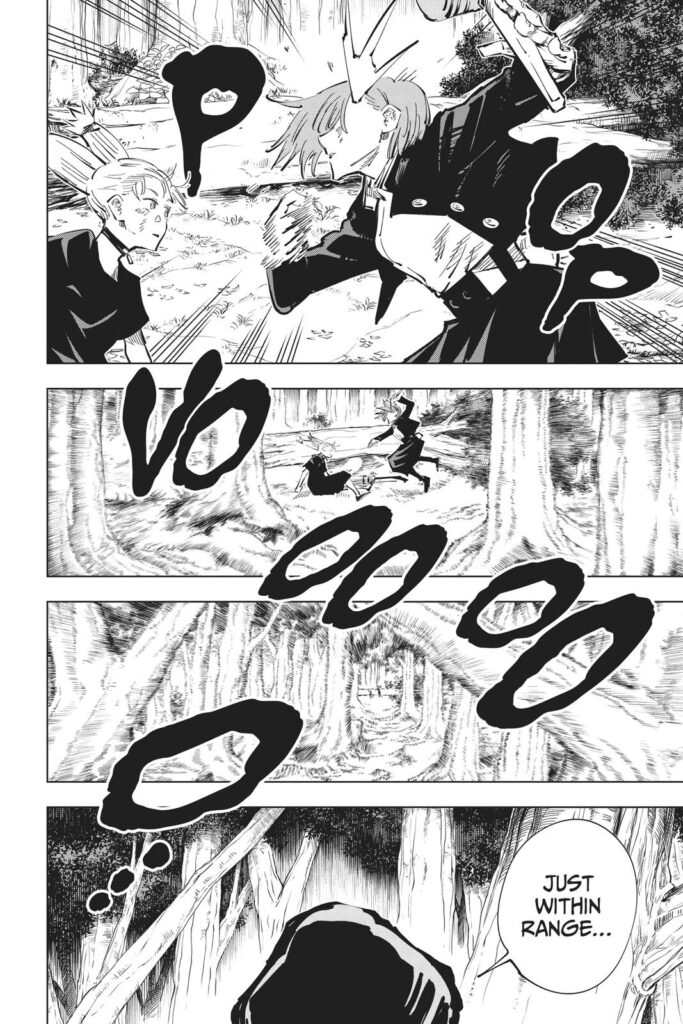
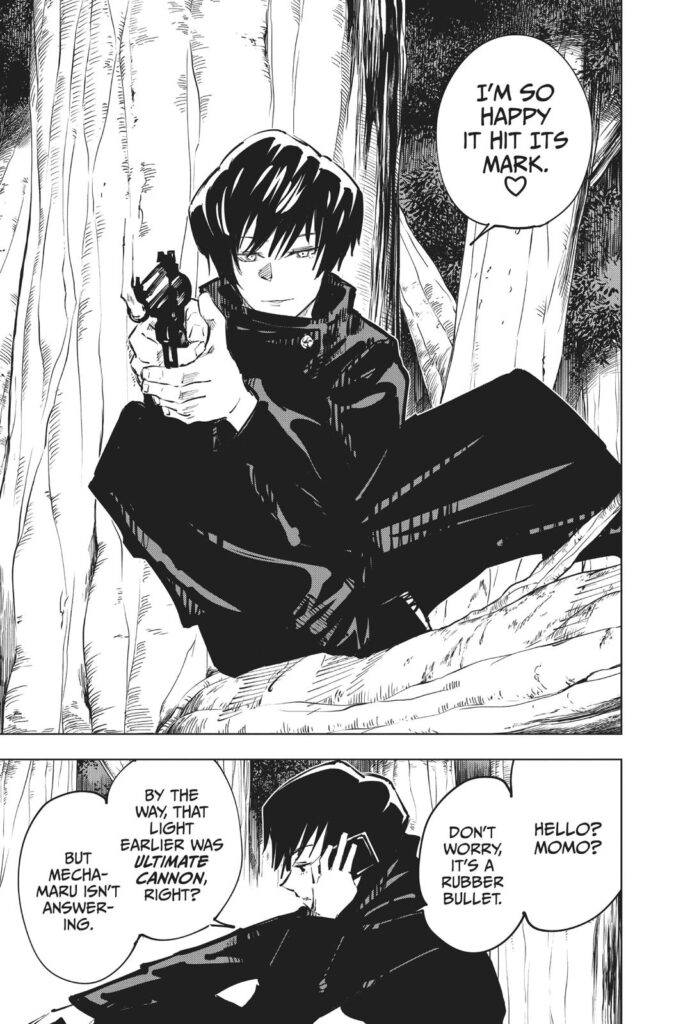
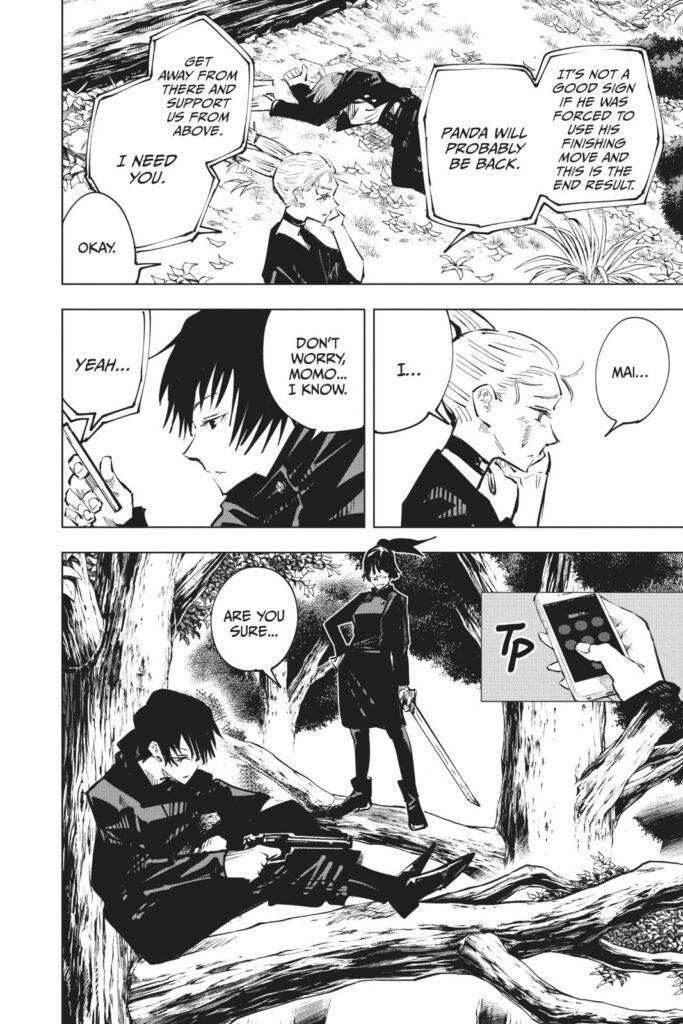
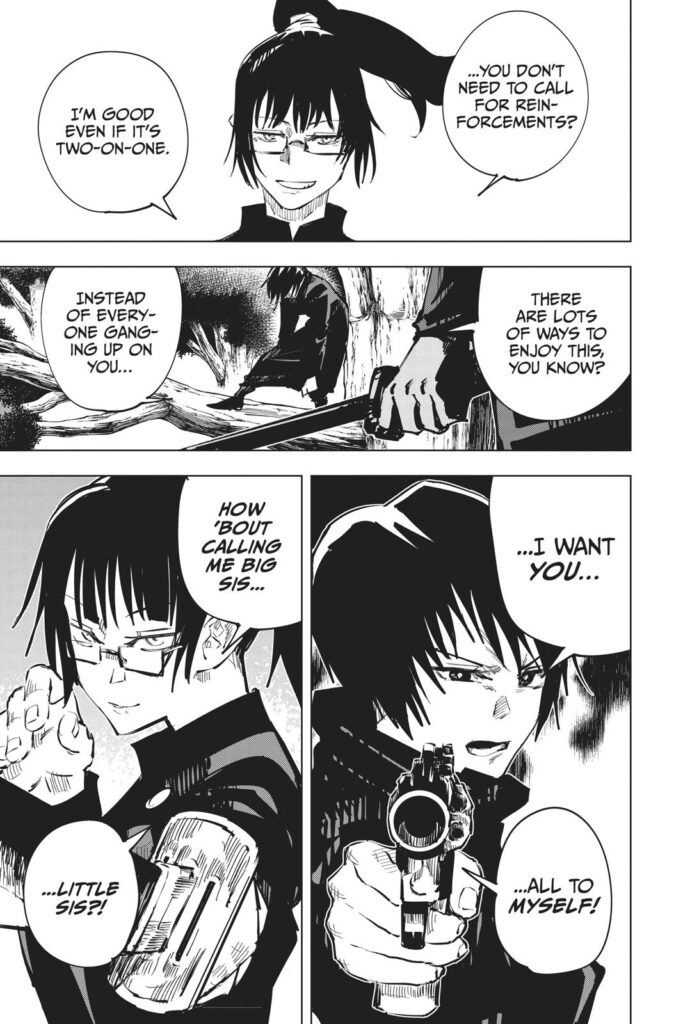
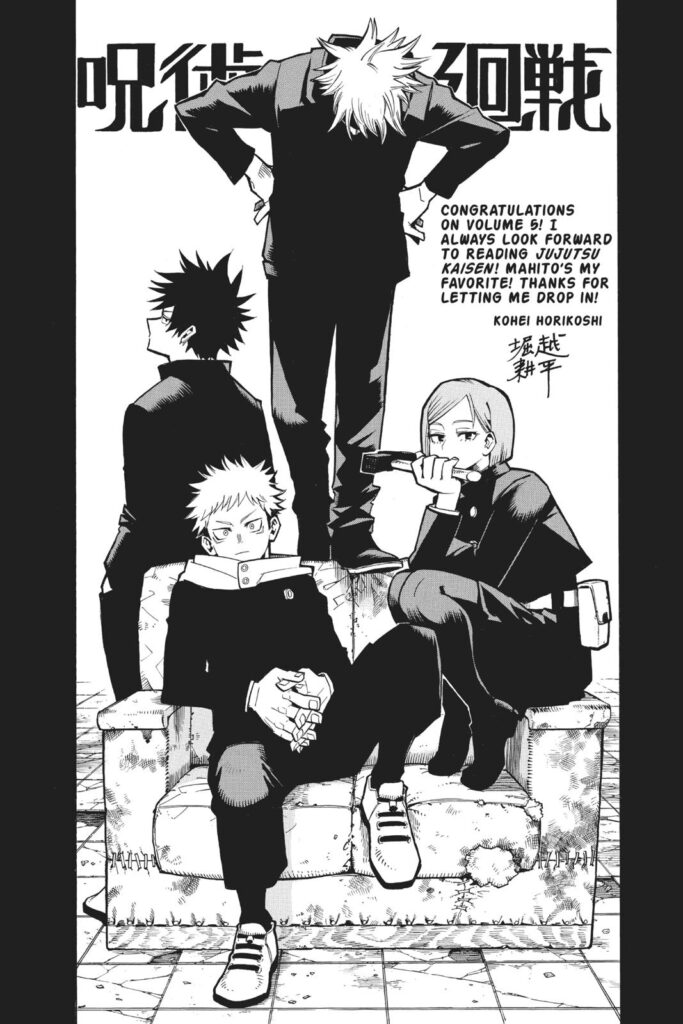
You are reading the English translated version of JJK Chapter 41.
Jujutsu Kaisen Chapter 41 Overview
Here’s a more detailed and refined breakdown of Jujutsu Kaisen Chapter 41, which delves into the key events, character dynamics, and significant themes that unfold during this chapter.
Nobara Kugisaki vs. Momo Nishimiya
In Chapter 41, the battle between Nobara Kugisaki and Momo Nishimiya unfolds in dramatic fashion. The fight is charged not only by physical combat but also by an ideological clash between the two characters, each representing different perspectives on the Jujutsu world.
- The Start of the Battle:
- Momo, an accomplished sorcerer, fights with her broom technique, using wind-based attacks that push Nobara back. Nobara, known for her resilience, struggles but remains steadfast. She refuses to back down, even in the face of overwhelming odds.
- Momo’s Reflection on the Zenin Family:
- In the midst of their confrontation, Momo reflects on the pain and struggles she faced growing up as part of the Zenin family. She feels a sense of bitterness regarding Mai’s treatment by the Zenin clan, hinting that Mai’s perceived imperfections were a result of the Zenin family’s expectations and treatment. This glimpse into Momo’s thoughts shows the deeper, emotional layers of her character.
- Nobara’s Counterarguments:
- Momo attempts to justify her grievances with the Zenin family, claiming that Mai’s poor treatment was justified due to her failure to meet expectations. However, Nobara sharply rejects this, stating that one can’t use such family dynamics as an excuse to treat people poorly.
- Nobara’s words reveal her worldview — one where individuals must take responsibility for their actions regardless of external circumstances. She shows a mature understanding that others should not be blamed solely for their misfortunes, especially if it leads them to harm others.
- Nobara’s Strength and Resolve:
- Despite Momo’s wind attacks and her defensive stance, Nobara’s tenacity shines through. She continues to stand strong and refuses to give in, pushing Momo into a corner. This determination showcases her own internal growth, reinforcing her character as someone who refuses to make excuses or let others dictate her sense of justice.
Maki Zenin’s Intervention
As the battle between Nobara and Momo escalates, the situation takes a drastic turn when Mai Zenin steps in with the intention of eliminating Nobara. In a moment of tension, Maki Zenin, ever the protector of her teammates, intervenes to defend Nobara, displaying a layer of her character that isn’t always seen.
- Maki’s Protective Nature:
- Despite the strained relationship she has with the Zenin family and the long-standing tension with Mai, Maki steps in when her comrades are in danger. This speaks to her sense of loyalty and responsibility towards the people she cares about, especially Nobara and the other members of the Tokyo Jujutsu High.
- Maki’s intervention is not just a show of physical power but a reaffirmation of her personal growth as a mentor figure. While she has always been known for her physical prowess, this moment emphasizes her evolving role as a protector who is willing to stand up for others.
- Maki’s Bond with Nobara:
- The chapter highlights Maki’s evolving relationship with Nobara, where she not only fights alongside her but also acts as a shield. This is particularly significant, as Maki has spent much of her life fighting against the Zenin family’s expectations, making her role as a mentor and protector all the more meaningful.
- Maki vs. Mai:
- The unresolved tension between Maki and Mai is evident throughout this chapter. Maki’s presence disrupts Mai’s plans, showing that, despite Mai’s internal struggles, Maki’s strength is something that the Zenin family can never overlook. The contrast between their personalities and experiences is subtly underscored as Maki steps in to shield Nobara, implying that Maki is everything Mai has yet to become — someone who fights for what is right, not out of bitterness, but out of care for those she loves.
Panda’s Victory
As the fight continues between the key players, Panda’s involvement in the overall team dynamic becomes more evident. While much of the chapter focuses on the confrontation between Nobara and Momo, there is a critical moment where Panda earns a victory by exorcising a curse. This marks a moment of significant progress for Panda’s character, reinforcing his growth as a fighter and a valued member of the Tokyo team.
- Panda’s Battle Accomplishments:
- The chapter subtly showcases Panda’s development through a talisman burning red, signifying that he has successfully completed his objective of exorcising a curse. This moment marks a key growth point for Panda, demonstrating that his training has been fruitful.
- Although Panda has faced internal challenges due to his unique identity as a cursed corpse with a human soul, this victory symbolizes that his experiences are contributing to his growing strength and resolve.
- Gojo’s Reflection on Panda’s Development:
- Gojo Satoru, ever the perceptive teacher, notices Panda’s accomplishments, reflecting on the progress of the Tokyo students as a whole. This moment serves as an important reminder that while the Kyoto Sister-School Goodwill Event is a test of strength, it is also an opportunity for each student to evolve and showcase their abilities.
Themes Explored in Chapter 41
- Identity and Growth:
- The battle between Nobara and Momo touches on themes of self-identity and personal growth. Nobara’s growth as a jujutsu sorcerer is demonstrated by her willingness to stand firm in her beliefs, showing the strength of character that has been built throughout the series. This mirrors Momo’s internal struggle, where her belief system, influenced by the Zenin family, is challenged by Nobara’s unwavering perspective.
- Family and Expectations:
- The Zenin family’s oppressive expectations are explored through both Momo and Maki. Momo’s bitterness toward her family is contrasted with Maki’s resilience in the face of familial rejection. Maki’s intervention on behalf of Nobara, despite the animosity with her own family, emphasizes the importance of family bonds formed through loyalty rather than bloodlines.
- Protective Bonds:
- The bond between Maki and Nobara is solidified in this chapter. Maki’s role as both a mentor and protector exemplifies the deepening relationships within the Tokyo Jujutsu High team. These bonds go beyond mere camaraderie and delve into a more familial territory, emphasizing the series’ broader themes of teamwork and support.
Key Takeaways and Character Arcs
Panda’s Growth: Panda’s exorcism of a curse, while not a focal point of the chapter, marks a turning point in his character, showing that he is more than just a quirky sidekick but a competent and evolving sorcerer in his own right.
Nobara’s Strength and Moral Stance: Nobara’s resilience in the face of adversity and her moral stance on responsibility and character development are brought to the forefront in this chapter. She’s not only fighting her opponents but also challenging the ingrained beliefs of her enemies.
Maki’s Protective Instincts: Maki Zenin’s intervention as a protector underscores her transformation into a leader within the Tokyo team. It’s a pivotal moment that highlights her evolution from a lone fighter to someone who genuinely cares for her teammates.
JJK Chapter 41 provides a deeper look into the personal growth of characters like Nobara, Maki, and Panda, while also exploring deeper thematic elements of family, identity, and strength. The character dynamics and their evolving relationships play a central role in shaping the events that unfold, making this chapter a crucial step in the overarching narrative of Jujutsu Kaisen.